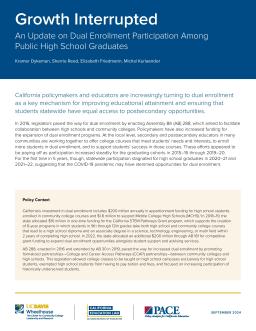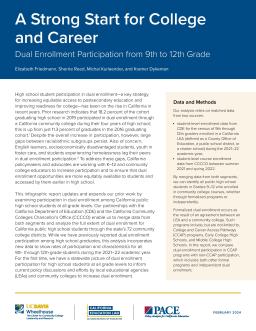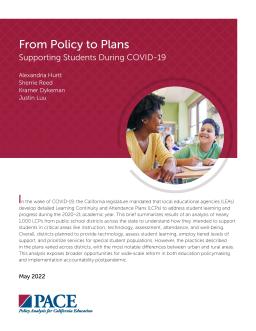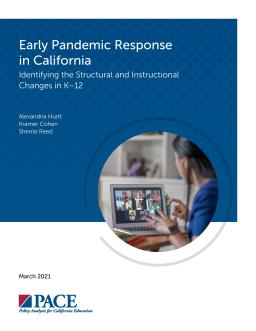Kramer A. Dykeman

Kramer A. Dykeman
Research Fellow and Data Manager, California Education Lab, School of Education,
University of California, Davis
Kramer A. Dykeman is a research fellow and data manager at the California Education Lab in the School of Education at the University of California, Davis. Their research interests include the economics of education and labor economics, specifically college readiness, educational effectiveness, and the effect of educational systems on historically underrepresented students. Prior to attending UC Davis, Dykeman was a research associate at the Public Policy Institute of California and taught at San Francisco State University. They hold a bachelor’s degree and a master’s degree in economics from San Francisco State University. Dykeman received their PhD in economics from the University of California, Davis.
updated 2025







